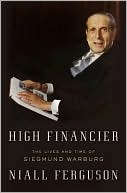Category Books
- Fiction Books & Literature
- Graphic Novels
- Horror
- Mystery & Crime
- Poetry
- Romance Books
- Science Fiction & Fantasy
- Thrillers
- Westerns
- Ages 0-2
- Ages 3-5
- Ages 6-8
- Ages 9-12
- Teens
- Children's Books
- African Americans
- Antiques & Collectibles
- Art, Architecture & Photography
- Bibles & Bible Studies
- Biography
- Business Books
- Christianity
- Computer Books & Technology Books
- Cookbooks, Food & Wine
- Crafts & Hobbies Books
- Education & Teaching
- Engineering
- Entertainment
- Foreign Languages
- Game Books
- Gay & Lesbian
- Health Books, Diet & Fitness Books
- History
- Home & Garden
- Humor Books
- Judaism & Judaica
- Law
- Medical Books
- New Age & Spirituality
- Nonfiction
- Parenting & Family
- Pets
- Philosophy
- Political Books & Current Events Books
- Psychology & Psychotherapy
- Reference
- Religion Books
- Science & Nature
- Self Improvement
- Sex & Relationships
- Social Sciences
- Sports & Adventure
- Study Guides & Test Prep
- Travel
- True Crime
- Weddings
- Women's Studies
High Financier: The Lives and Time of Siegmund Warburg »

Authors: Niall Ferguson
ISBN-13: 9781594202469, ISBN-10: 159420246X
Format: Hardcover
Publisher: Penguin Group (USA)
Date Published: June 2010
Edition: (Non-applicable)
Author Biography: Niall Ferguson
Niall Ferguson is Laurence A. Tisch Professor of History at Harvard University, a Senior Research Fellow of Jesus College, Oxford University, and a Senior Fellow of the Hoover Institution, Stanford University. The bestselling author of The War of the World and The Ascent of Money, he also writes regularly for newspapers and magazines all over the world. Since 2003 he has written and presented four highly successful television documentary series for British television: Empire, American Colossus, The War of the World , and most recently The Ascent of Money.
Book Synopsis
Bestselling author Niall Ferguson reveals for the first time the true extent of Siegmund Warburg's influence—-and the lessons we can learn in a time of crisis from the last of the high financiers.
Publishers Weekly
Siegmund Warburg (1902-1982), scion of a Jewish banking dynasty, fled Nazi Germany to London, where he became a leading banker and an informal economic adviser to prime ministers—but his importance doesn’t shine through this unfocused biography. Financial historian Ferguson (The Ascent of Money) styles him a financial innovator (he engineered Britain’s first hostile takeover), a pioneer of European economic integration (he helped invent the Eurobond), a “prophet of globalization,” a paragon of fiscal rectitude whose principles could have helped us avoid the current economic mess, and a deep thinker about international affairs. Unfortunately, Ferguson doesn’t make a compelling argument for his subject’s significance. Laymen will find his sketchy treatment of Warburg’s feats of “high finance” rather opaque and his case for Warburg the humanist and intellectual weak (and undermined by his subject’s obsession with handwriting analysis). Ferguson uses Warburg’s life as a window onto European unification and Britain’s postwar economic malaise, but his account, which is constantly distracted by deal making and office politics at Warburg’s banking partnership, is too unsystematic to do these topics justice. The view from Warburg’s lofty perch doesn’t make for a discerning perspective on the world around him. (July)
Table of Contents
Subjects
 Business Biography
Business Biography  Capitalists & Financiers - Biography
Capitalists & Financiers - BiographyBiography
 All Biography
All Biography  Business Biography
Business BiographyBusiness Books
 Business Biography
Business Biography  Capitalists & Financiers - Biography
Capitalists & Financiers - BiographyNonfiction
 All Nonfiction
All Nonfiction  Business Biography
Business BiographyNonfiction
 Biography
Biography  Business Biography
Business BiographyNonfiction
 Biography
Biography  All Biography
All Biography
